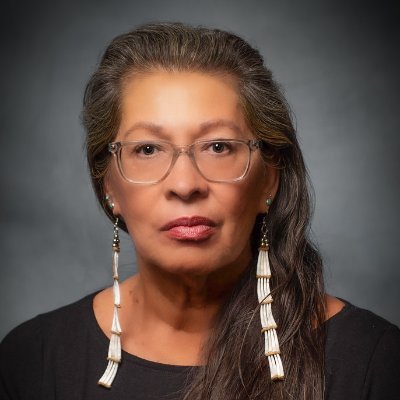Guest Opinion. In violation of Tribal sovereignty, the Trump administration is putting in place new “emergency permitting” regulations to fast-track mining and fossil fuel projects on federal lands.

Back when Deb Haaland ran the Department of the Interior (DOI), which oversees our ancestral homelands, we made historic progress. But under Trump, the DOI is getting rid of Tribal consultation, environmental reviews, and opportunities for the public to challenge dangerous polluting projects.
The DOI’s new permitting regulations “take a multi-year process down to just 28 days at most.” This new process will give Tribes that are “likely to be affected by a proposed undertaking” a maximum of only 7 days to comment after being notified -- ripping Tribal consultation and informed consent to shreds.
Consulting with Tribes and getting our input on projects that affect us is the minimum standard. Tribes are sovereign Nations that are owed true Nation-to-Nation relationships with the U.S. federal government, including co-managing federal lands and sacred places. This inherent sovereignty includes the right to make decisions about projects that may affect our communities, our territories, and our human rights.
Here at Native Organizers Alliance Action Fund, we’re growing the grassroots movement pushing the government to respect Tribal sovereignty and fulfill its obligations to Tribes. With your support, we will keep building the Indigenous political power that’s needed to ensure self-determination.
The U.S. has signed onto international law declaring that Indigenous peoples are owed Free, Prior, and Informed Consent. The federal government must get our consent before moving forward with any project that impacts us. That doesn’t mean notifying us after a decision is made; it means including Tribes in meaningful decision-making processes well before any decision is made about our lands, resources, or people.
The Trump administration is doing the opposite.
Its new “emergency permitting” regulations will shorten processes that typically take one to two years to a few weeks. When making big changes like this, presidential administrations must give time for public comment and opinions, but the Trump administration isn’t even doing that.
At the same time, they’re moving to fast-track specific projects that have been opposed by Tribes, including the Line 5 oil and gas pipeline in the Great Lakes and the copper mine that will erase sacred Oak Flat in Arizona.
The administration has also exempted corporate polluters from air standards, letting them poison our communities for profit. They’re bypassing and weakening life-saving environmental laws. And they’re trying to give corporate polluters unrestricted access to so-called public lands (which were stolen from Indigenous peoples).
Due to toxic mining and fossil fuel development on public lands, Native communities already face disproportionate environmental health impacts and violations of our human rights. But the Trump administration wants to let corporate polluters dump even more toxic waste near Native communities.
This administration is accelerating a centuries-old pattern: helping corporate polluters profit by threatening the lands we all cherish. Native peoples have continually organized and fought back, and our ancestors have overcome countless attacks and setbacks.
We walk in their footsteps today.
Judith LeBlanc (Caddo), executive director of Native Organizers Alliance Action Fund, whixh is a partner to Native Organizers Alliance.
More Stories Like This
Tribes Seek Better Data, Real Accountability in MMIP Cases Ahead of Tribal ConsultationWhat Would Dr. King Say About ICE?
In Unity and Commitment
Protecting Our People through Human Trafficking Awareness
It is Time for Animal Behavior to Become Its Own Discipline
Help us defend tribal sovereignty.
At Native News Online, our mission is rooted in telling the stories that strengthen sovereignty and uplift Indigenous voices — not just at year’s end, but every single day.
Because of your generosity last year, we were able to keep our reporters on the ground in tribal communities, at national gatherings and in the halls of Congress — covering the issues that matter most to Indian Country: sovereignty, culture, education, health and economic opportunity.
That support sustained us through a tough year in 2025. Now, as we look to the year ahead, we need your help right now to ensure warrior journalism remains strong — reporting that defends tribal sovereignty, amplifies Native truth, and holds power accountable.
 The stakes couldn't be higher. Your support keeps Native voices heard, Native stories told and Native sovereignty defended.
The stakes couldn't be higher. Your support keeps Native voices heard, Native stories told and Native sovereignty defended.
Stand with Warrior Journalism today.
Levi Rickert (Potawatomi), Editor & Publisher

